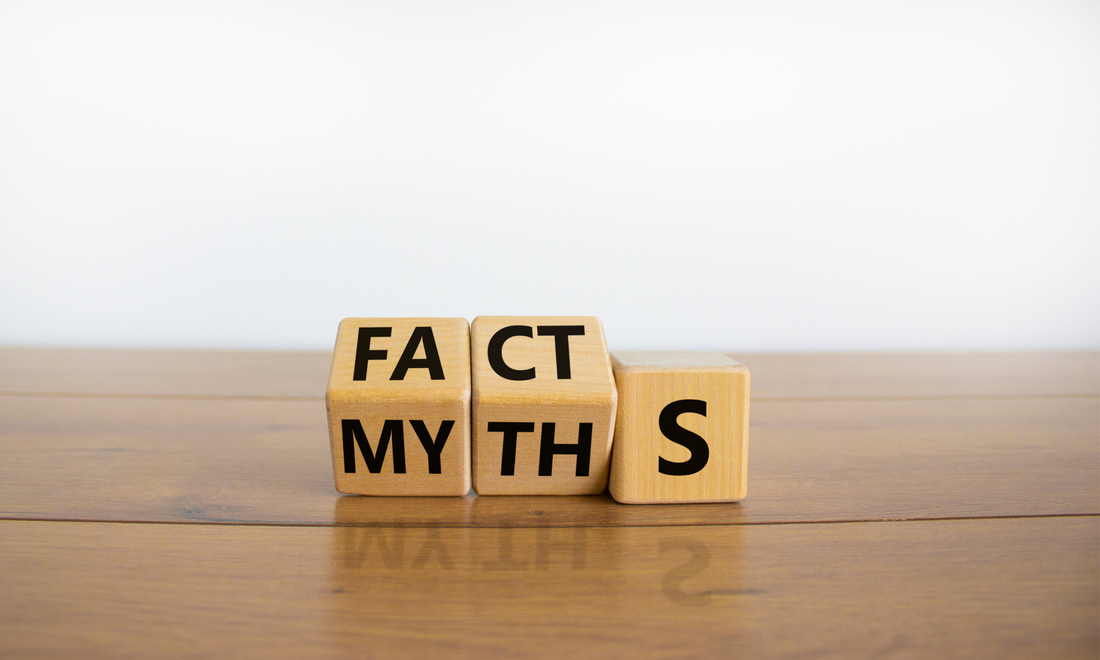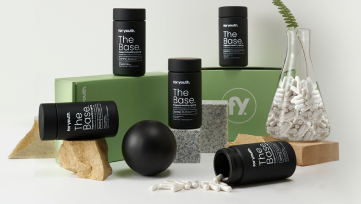The Truth About NMN: Separating Science from Hype

NMN (nicotinamide mononucleotide) has been making headlines in recent years for its potential anti-ageing benefits, but there are still a number of myths and misconceptions about this molecule and its effects on the body. Here are a few common NMN myths that have been debunked by scientific research:
By signing up, you consent to receive For Youth emails
Get The Latest On Longevity Delivered To Your Inbox.
Myth #1: NMN is a miracle cure for ageing.
While NMN has shown promise as an anti-ageing supplement in scientific studies, it’s important to note that it’s not a cure-all for ageing. Ageing is a complex process that involves many different factors, and there’s no single molecule or supplement that can reverse or stop the ageing process entirely.
Myth #2: NMN is the same as NAD+.
NMN and NAD+ (nicotinamide adenine dinucleotide) are related molecules that play important roles in energy metabolism and cellular signaling, but they’re not the same thing. NMN is a precursor to NAD+, meaning that it’s converted to NAD+ within the body, but they have different properties and effects on the body.
Myth #3: NMN is only effective in high doses.
While some studies have used high doses of NMN to achieve specific results, it’s important to note that more isn’t always better when it comes to supplements. In fact, some studies have shown that low doses of NMN may be just as effective as higher doses, and that taking too much may actually have negative effects on the body.
Myth #4: NMN is unsafe and untested.
NMN has been the subject of numerous scientific studies in recent years, and it has been found to be generally safe and well-tolerated by most people. While more research is needed to fully understand its long-term effects and potential risks, early studies suggest that it’s a safe and promising supplement for promoting healthy ageing.
Myth #5: NMN can replace healthy lifestyle habits.
While NMN may have potential benefits for ageing and overall health, it’s important to remember that it’s not a substitute for healthy lifestyle habits like regular exercise, a balanced diet, and good sleep habits. Supplements should always be used in conjunction with a healthy lifestyle, not as a replacement for it.
By debunking these common NMN myths and misconceptions, we can gain a better understanding of this molecule and its potential benefits for healthy ageing. While there’s still much we don’t know about NMN and its effects on the body, scientific research is shedding new light on this promising anti-ageing supplement.
FAQ:
What is NMN?
NMN stands for Nicotinamide Mononucleotide, a compound that plays a crucial role in the production of nicotinamide adenine dinucleotide (NAD+), a vital molecule involved in various essential cellular processes, including energy metabolism, DNA repair, and cellular signaling. NMN has gained popularity as a dietary supplement purported to offer anti-aging benefits by boosting NAD+ levels in the body.
How does NMN work in the body?
Once ingested, NMN is quickly absorbed and enters the bloodstream, spreading throughout the body, including vital organs like the liver and muscles. From here, it’s converted into NAD+ inside cells. The increased availability of NAD+ is believed to enhance several cellular functions that decline with age, potentially reversing certain aging processes and improving metabolic health, brain function, and overall energy levels.
Can NMN reverse aging?
The concept of NMN reversing aging is a subject of ongoing scientific investigation. Current research, largely conducted on animals, shows promising signs that NMN supplementation can improve markers of aging, such as increasing lifespan, improving energy metabolism, and enhancing cognitive function. However, the evidence supporting these effects in humans is yet to be conclusive. It’s crucial to differentiate between extending lifespan and improving healthspan; NMN may primarily impact the latter by enhancing the quality of life and delaying age-related decline.
Are there any side effects of taking NMN?
To date, short-term studies indicate that NMN supplementation is generally safe and well-tolerated by healthy adults within certain dosage guidelines. However, the long-term effects of NMN supplementation are not fully understood, and more research is needed to assess its safety profile accurately. As with any supplement, it’s essential to consult with a healthcare provider before starting NMN, especially for those with underlying health conditions or those taking medications.
How much NMN should someone take?
The optimal dosage of NMN for humans has not been definitively established. Dosages in human studies have varied widely, with some research suggesting benefits at doses ranging from 250 mg to 1,000 mg per day. Since the absorption and metabolism of NMN can vary between individuals, it’s critical to start with a lower dose and adjust based on personal tolerance and health goals, under the guidance of a healthcare provider.
Is all the hype around NMN justified?
While NMN does have scientific backing for its potential benefits, particularly in preclinical models, the hype around it as a miracle anti-aging solution may be overstated. The science is still evolving, and much of the excitement stems from animal studies. Human research is in its infancy, and though initial results are promising, it’s important to maintain realistic expectations and rely on reputable sources of information and high-quality NMN supplements.








